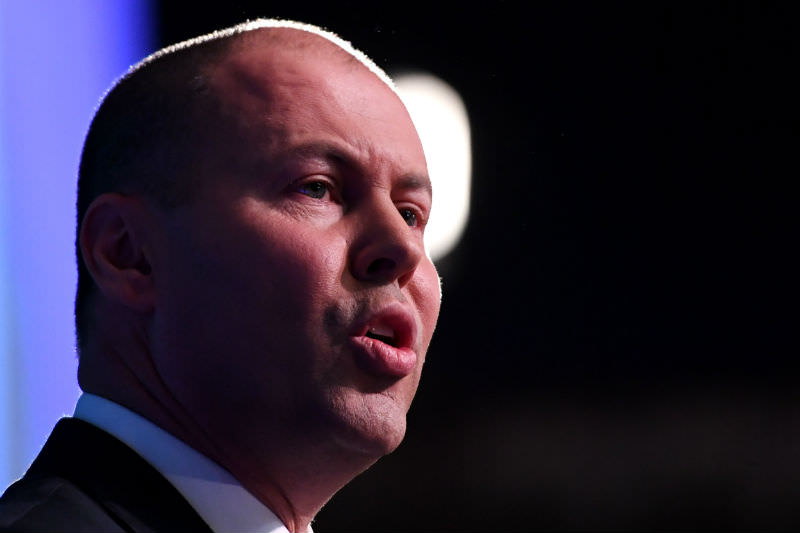- John Falzon
- 03 April 2019
The vacuousness of this year's budget is matched only by the viciousness of the inequality it entrenches. The much trumpeted projected budget surplus, such as it is, is built on the backs of people who are left out and often made to feel that they are left over, surplus to the economy: people on low pay or no pay, young people, sole parents, people experiencing homelessness, people living with a disability.
 These
are the people who bear the brunt of inequality and once again they are
told that there is not enough money in the tin to meet their needs,
while the largesse is reserved for the already wealthy. One is reminded
of Martin Luther King's observation of the USA: 'This country has
socialism for the rich and rugged individualism for the poor.'
These
are the people who bear the brunt of inequality and once again they are
told that there is not enough money in the tin to meet their needs,
while the largesse is reserved for the already wealthy. One is reminded
of Martin Luther King's observation of the USA: 'This country has
socialism for the rich and rugged individualism for the poor.'The urgent need to lift Newstart, currently at $40 a day, so that people locked out of a job no longer need to wage a daily battle for survival from below the poverty line, has become a point of rare consensus for everyone from the ACTU to the Business Council of Australia; from ACOSS to Deloitte. The failure to increase this payment remains a deep wound in the nation's soul. Instead of healing this wound the government has rubbed salt in it, even going so far as to exclude unemployed workers from its pathetic one-off energy payment, only to belatedly include them the day after, a payment in any case so low, at $1.45 a week, that it won't even buy a hot apple pie from McDonalds, let alone keep the heating on at home.
US jurist Oliver Wendell Holmes famously said: 'Taxes are the price we pay for a civilised society.' It is clear that taxation is viewed by the current government as something that needs to be minimised rather than properly administered and harnessed for the public good. It is the 'tax cuts' trope that is persistently paraded as the greatest public good. One cannot help but think that instead of Holmes' formulation the government is of the view that: 'Modest tax cuts for working class people are the price we pay for generous tax cuts to corporations and the wealthy.'
One of the hallmarks of neoliberalism is the trick of the eye whereby we are convinced that government deliberately steps out of the way to let the market work its magic. In fact, neoliberal governments consistently and systematically intervene on the side of big business. They style themselves as being diametrically opposed to the notion of planning, portraying this as a residuum of the Soviet era, which might be true as long as you include Roosevelt's New Deal as well as Curtin's White Paper on Full Employment in this category. What neoliberal governments have done is very different but has required no less planning. They have instigated Big Business Plans, plans that follow the template of atomising labour while dismantling the architecture of what used to be known as the welfare state, consisting of the public provision of such necessities as education, health, social security and housing.
The atomisation of labour has happened in plain site. It has consisted of three prongs. The first is the suppression of the rights of workers, especially through union bashing, and limitations on the rights to withdraw labour, bargain, organise and enforce conditions in the interest of worker safety. The second is changing the rules in the labour market, usually referred to as deregulating but more accurately described as re-regulating in favour of employers, particularly in the areas of employment status, casualisation, labour hire, contracting, gig work and flexibility (or as, workers prefer to call it, precarity).
The third prong is embedding a sense of social insecurity for workers who are unemployed, keeping unemployment benefits at extremely low levels and reinforcing a narrative around the idea that the worst paid work is better than no work, driving a wedge between those on low pay and those on no pay while actually erasing the boundary between the two due to the normalisation of precarity and the rise in the numbers of people in paid work experiencing poverty (USA style).
"It would have taken a colossal act of optimism to expect an investment in people from this year's budget."
Amid the fanfare surrounding the banquet of tax cuts that working people are supposedly set to feast on, the facts are that they increase disposable incomes for working people by less than one per cent (and by zero for the lowest-paid). If, as opposed to this cheap trick, wage stagnation had been addressed, the increase to disposable incomes would have been substantial.
It would have taken a colossal act of optimism to expect an investment in people from this year's budget. At a time when, under the banner of neoliberalism, we have grown accustomed to the boot being put into the people who bear the brunt of inequality, many of us have almost come to believe the lie that people on low pay or no pay are the least productive. The flipside of this bad penny is the fantasy that the highest paid and wealthiest are the most productive, the ones the rest of us should be grateful to.
The problem is that the concentration of wealth in the hands of a very few has occurred at the same time as protracted wage stagnation and growing inequality. Aided and abetted by neoliberal governments, big business has reaped the benefits of atomising the workforce while dismantling what we once proudly called the welfare state.
We cannot turn the clock back but we can rationally plan ahead to craft a social guarantee that encompasses a genuine jobs plan to address the structural causes of unemployment and underemployment. We can reconfigure our social security system to better reflect the changes in the labour market as well as being informed by a feminist analysis of the politics of caring. We can begin again to invest in people, instead of punishing them and further excluding them. The government's tax cuts, far from being the embodiment of a rational plan for the future, constitute a dangerous act of profoundly irrational faith, given its systematic undermining of our revenue base in the face of uncertain economic forecasts.
Overall, the government's planned tax cuts, with their excessive benefits to the wealthy, are, let us not forget, a plank in the radical flattening of Australia's personal taxation system announced in the budget of 2018, fuelled by short term windfall gains rather than being guided by the long-term national interest. This flattening has, in budget 2019, been exacerbated. Removing the 37 per cent tax bracket in 2024, as planned, means reducing the tax on all income between $45,000 and $200,000 to 32 per cent. The tax on this bracket is now going to be lowered, if the government's tax plan is passed, to 30 per cent!
This tax flattening goes hand in glove with cuts to social expenditure. It means cuts to social housing, social security, public health and public education; a flattening that rips the guts out of what remains of a fair go. Because when you flatten a progressive tax system you deepen inequality.
Good governments fight inequality. This year's budget — with its budget 2014 lineage; with its kick in the guts to unemployed workers and its refusal to address wage stagnation for low paid workers; with its racist rollout of the paternalistic cashless welfare card to First Nations communities — reaffirms that this government wants not to battle inequality but to boost it.
 Dr
John Falzon is Senior Fellow, Inequality and Social Justice, at public
policy think tank, Per Capita. He was national CEO of the St Vincent de
Paul Society from 2012 to 2018.
Dr
John Falzon is Senior Fellow, Inequality and Social Justice, at public
policy think tank, Per Capita. He was national CEO of the St Vincent de
Paul Society from 2012 to 2018.
No comments:
Post a Comment